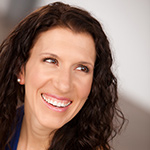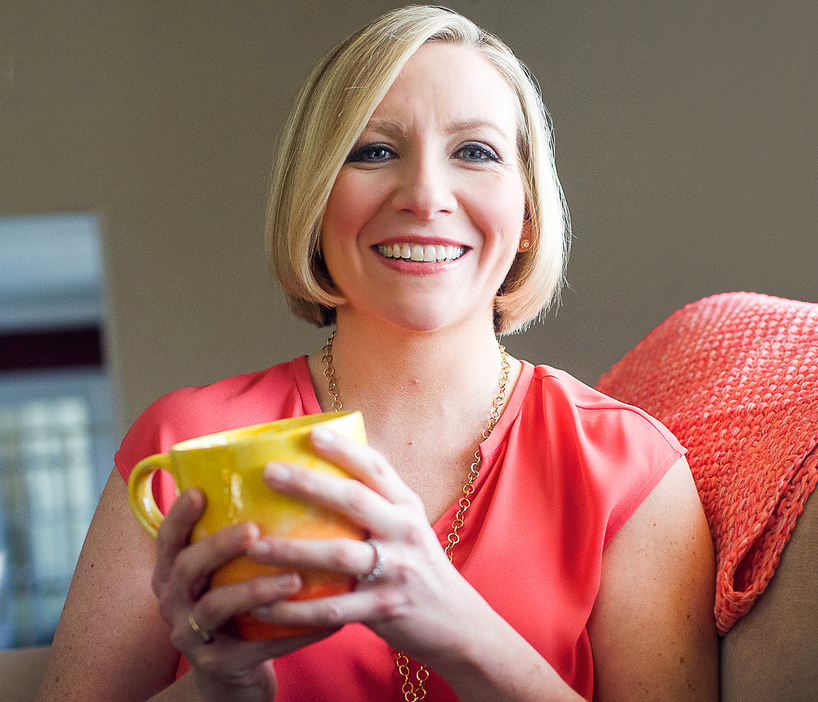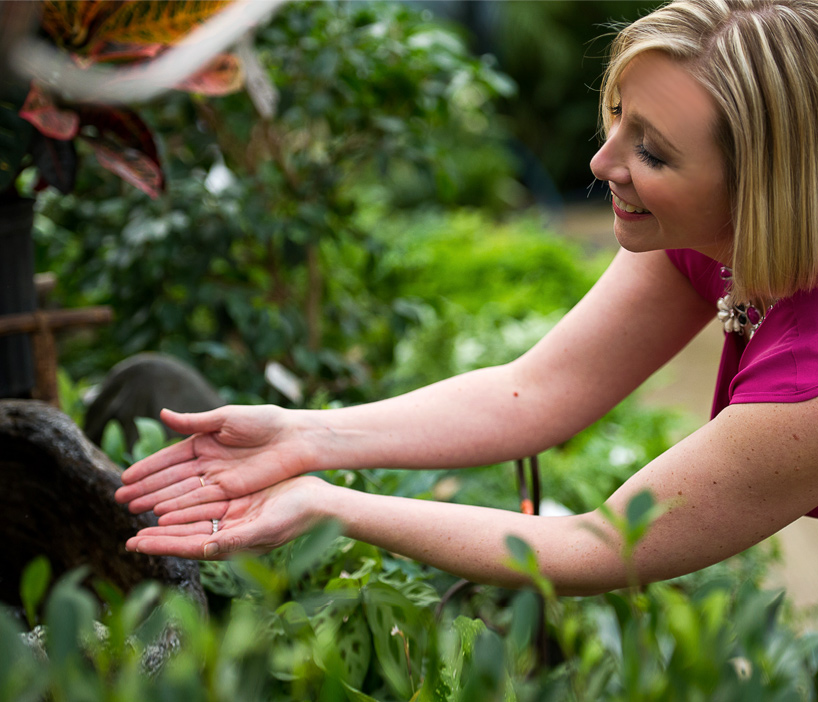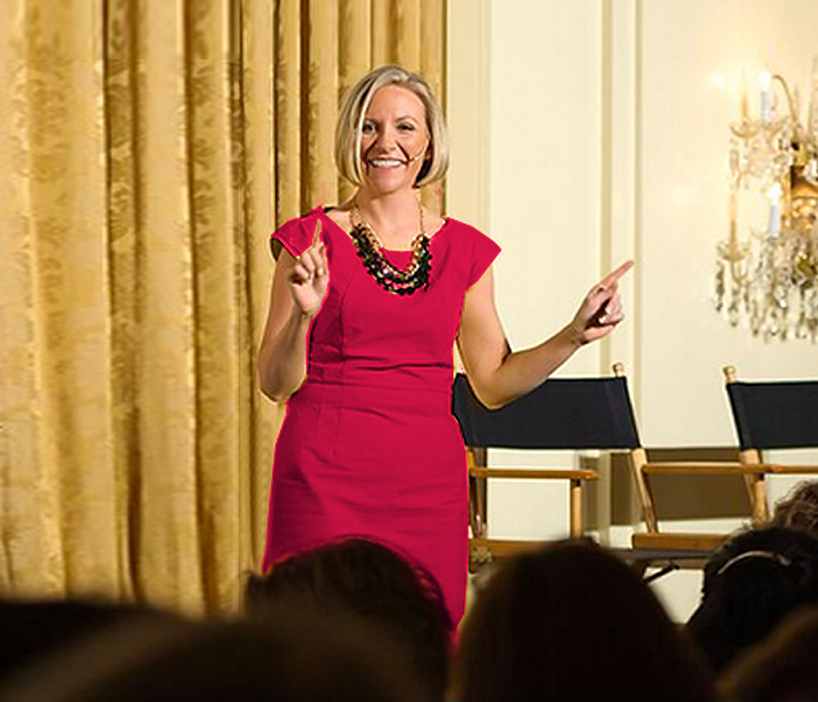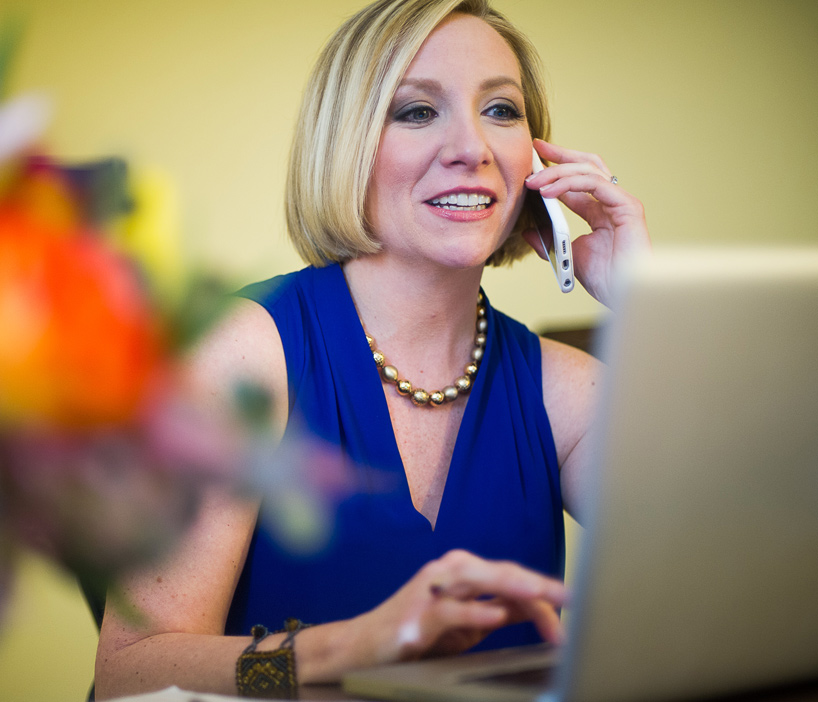Have you ever felt like you can’t keep up with the constant flow of information and stimulation in the world? If so, you’re not alone. In this fast-paced, constantly connected world, it’s easy to get overwhelmed and even burn out. But what if there was a way to find calm during the chaos? What if there was a way to find meaning and purpose in a world that often feels meaningless? Enter Mark Hawkins. In his research, Mark focuses on interdisciplinary understandings of meaning and purpose as they relate to human wellbeing. He is the author of The Power of Why: Boredom is Essential for Creating a Meaningful Life and The Mismatched Human: Our Fight for Meaningful Existence. In this episode, Mark shares his insights on the importance of boredom in finding meaning and purpose in our lives. He also offers tips on how to create space for boredom in our constantly connected world. If you’re feeling lost or adrift in the world, this episode is for you. Tune in to learn how to create a more meaningful life.
1. Allow yourself to be bored as a way of reducing the amount of engagement that our brain is getting.
This can be done by simply staring into space or looking at magazines instead of looking at a screen when you have free time. Doing this on a regular basis can help you to find more meaning in your life and to better understand your own thoughts and emotions.
2. Boredom is a space for reflection, for finding meaning and purpose.
It can be a difficult emotion to deal with, as it can bring up a lot of fears and anxieties. However, it can help us get to know ourselves better.
3. Boredom can help us to experience the things that have meaning in our life and identify the ones that aren’t as meaningful.
This means sitting with the restlessness and discomfort that boredom brings up, and acclimatizing ourselves to it. Doing this on a regular basis can help us to find more sustainable meaning in our lives, rather than always chasing the new and exciting.
In a world that is constantly moving and constantly connected, it can be easy to feel overwhelmed and even burnt out. However, as Mark points out, there is value in boredom. Boredom allows for reflection and finding meaning and purpose.
Connect with Mark:
Instagram: @coldnoodlecreative
Facebook: @coldnoodlecreative
Website: coldnoodlecreative.com
The Mismatched Human
The Power of Boredom
SUBSCRIBE TO THE SPACE FOR MAGIC PODCAST ON YOUR FAVORITE PODCAST PLATFORM
Apple | Spotify | Stitcher | i
0:00
If we don’t allow ourselves to slow down and to experience those kind of moments and space, then we do really run the risk of sort of being on autopilot in a way, where we’re not assessing or thinking about our own existence. We’re not thinking about our own lives, we’re just kind of, in this rush in this flow of all this excitement and novelty without thinking too much about it. And we can end up somewhere in our lives maybe where we don’t want to be right. So primarily, it’s a space where if for reflection, it’s a space for finding meaning and purpose. It’s also if you allow yourself to be bored, then the other things in your life will begin to have more meaning.
0:44
Welcome to the space for magic podcast where people who are led by their hearts come to learn the secrets to receiving all the gifts the universe has for us. I’m your host, Patty Lennon. I’m an X type a corporate banker turned intuitive coach, using a blend of common sense brain science and just a dash of magic. I’m here to help you create abundance in every area of your life, and business. Welcome.
1:20
Hello, everyone, welcome to this episode of the space for magic podcast. We are heading into the holidays and the holidays can be one of two things, they can be super crazy. Or if you have children at home, you might be hearing choruses of I’m bored. And what are we gonna do next? And my guest today is an expert on boredom, although I’m not sure that’s what he call himself. That’s part of what we’re going to be talking about today. So you are going to get to meet Mark Hawkins PhD. He’s an author, educator and clinical counselor. He has been interviewed by the New York Times The Daily Telegraph, and several other news stations and podcasts for his ideas. His research focuses on into interdisciplinary understandings of meaning and purpose as they relate to human wellbeing. Mark was published in the Journal of humanistic psychology and is the author of The Power of boredom, why boredom is essential for creating a meaningful life. He’s also the author of the mismatched human our fight for a meaningful existence. He lives in Vancouver with his wife Yuna, welcome, welcome, Mark.
2:31
Hello, Patty. Thank you for that great introduction.
2:34
Yeah. Did I pronounce your your wife’s name correctly? Yeah,
2:37
you did? Yuna
2:39
I normally check on that beforehand. Okay, so I am so interested in this topic. Of course, meaning purpose is, you know, at the heart of a lot of what I talk about here in space for magic. But that topic of boredom, when So, Terri, for those of you who are regular listeners, Terri Trespicio, has been on a couple of times, Terri reached out to me and said, Oh, my goodness, you have to interview mark for the podcast. His ideas are blowing my mind. They were integral in her book. And for that reason, I’m so happy to have you here, Mark. Yeah, thank
3:17
you, Patty. I’m excited to talk about everything here.
3:20
Yeah. So of course, my biggest question is, is boredom at risk, simply because of the obvious answer, which is technology and our world? Or is so filled with things that can occupy us? Can you kind of give me a sense of what you think is the reason why we are so averse to boredom at this stage in our humanity? Like evolution?
3:50
Yes, for sure. I think the first thing to understand from my research is that humans again, going back to the Paleolithic era, we are actually meant to move to be, you know, moving towards survival to be always sort of changing things around, right, because that was good for survival. Now, the problem with today, though, is that there is just too much for our minds to deal with. And what I really mean is that, I guess in the Paleo era, we would go foraging, we will hunting, and that would keep our mind sort of occupied. And that was sort of the movement, right? And we’re meant to do that. But it’s gone overboard. In our modern world. You know, they say that there’s the gorging gene for humans. So it is part of our DNA where we are trained to gorge on food when we have it, but it’s not just food. In my perspective, it’s also the movement we always want to be engaged. Okay. And much like how it’s so easy to gorge on food in the modern world. It’s also too Easy to gorge on excitement, novelty movement, right? So wanting to be moving and always engaged is a normal thing. However, it is just far out of balance. And the whole idea of the power of boredom is that we need to sort of rein in, you know, our need for engagement and excitement, and go back to more of a balanced approach. If that makes sense. It totally
5:24
makes sense. And in my heart, I understand it, and I feel it. But what is the value of boredom? Can you kind of talk us through that? Well, I
5:37
think there’s several aspects. The first one I would say would be that, if we don’t allow ourselves to slow down and to experience those kind of moments in space, then we do really run the risk of sort of being on autopilot in a way, where we’re not assessing or thinking about our own existence, we’re not thinking about our own lives, we’re just kind of, in this rush in this flow of all this excitement and novelty without thinking too much about it. And we can end up somewhere in our lives, maybe where we don’t want to be, right. So primarily, it’s a space, where if for reflection, it’s a space for finding meaning and purpose. It’s also if you allow yourself to be bored, then the other things in your life will begin to have more meaning. I’m not sure if if you have noticed this, or if your listeners have noticed this is that the more things you fill your life with, whether it’s you know, people or commitments and all those things, then the less meaning each of those individual things seem to have, right. So the more stuff that’s going on, the less meaning each of those things has. And so I think that if you allow yourself to be bored, you begin to experience the actual things that have meaning in your life and which ones don’t have meaning, or have maybe have less meaning.
7:02
Now, do you have tips on how people can get bored? I know that’s
7:09
yes, no, I, it is definitely more difficult today than ever before, obviously. And what I always tell people is that you can do really, really simple things, for example, you know, instead of going on your phone, while you’re waiting in an elevator, or waiting in an office, you can just simply stare, you can just sit there, right, you could look at magazines. So and that’s a way of sort of reducing the amount of engagement that our brain is getting. But you can also do a more purposeful sort of sitting with boredom, which you know, I do from time to time, which is, maybe after work, or just when you have a bit of time in your day, instead of filling it up with typing house or whatever it is that you might do, just sit there for 10 minutes, 15 minutes, and just experience the restlessness experience that the emotion of boredom, right, and kind of acclimatized yourself to it. Now, you don’t want to do it for too long, because I don’t think that’s natural either. Right? It’s about bringing ourselves kind of back into balance. And so if we do that on a regular basis, we build up our tolerance for just sitting around and doing nothing, which I think that is a very important thing to do in our modern world.
8:31
Hmm, I love that. So one of the homework assignments, I give people who, well, I give it for a lot of reasons, but it’s especially important for people who feel very overwhelmed, very worn out fatigued is take two weeks off your life, meaning like out of your day to day obligations. And allied people feel like they can’t possibly do that. But even if they can get down to three days, and the goal is to have, you know, even like if you have children not having to take care of their daily needs that kind of thing. And to stay away from technology, and almost everyone who does this experiences the same thing. So I’m curious if you have any thoughts on like, what exactly is happening? And the thing that they experience is, by the end of the first day is this fear that they’re getting it wrong? And this anxiety that they’re not going to be able to get the benefit of this time? And so it’s almost like their brain starts searching for how is this putting me in crisis?
9:44
Yeah, so I think if you are not used to having a lot of space and time in your life, all of a sudden taking huge gaps of time off can be terrifying. Because partially our society has programmed us so much To just always be doing, accomplishing, trying to get ahead, that in the spaces of boredom, all that rises up, right, as soon as you have that space, and that time to actually let your unconscious and your mind free of it, it just fills itself up with this anxiety that you should be doing something. And so that’s why I would usually I think, get people to acclimatized themselves to spaces of emptiness and boredom, before taking, you know, vast amounts of times off. Because it can be very anxiety provoking. And it’s also, I guess, our brains have gotten used to such high levels of stimulation, that we have to get our kind of brains and our bodies used to that slowing down, before we go headlong into, you know, huge amounts of like, emptiness or time off. And I think there’s also a level of, I mean, some of us might feel even guilty about not doing things constantly. And that’s one thing about boredom is that it really, it opens up a space that allows all sorts of emotions and thoughts and unconscious feelings to come up. And that is often a really difficult thing to deal with as well. That’s part of why it’s a powerful emotion as well, because we can get to know ourselves and our fears and our thoughts more if we allow that all those feelings to well up in that space of boredom.
11:30
So you talk about, like in the title of the book you talk about, let me read out why boredom is essential for creating a meaningful life. I do feel like so many people feel that meaning is missing. Why do you think that is? And where do you feel like the meaning comes from?
11:53
I think, meaning is, first of all, it’s an essential thing for humans to have mental well being and mental health. But I think it is increasingly hard in our modern world to find a meaning that is sustainable. Part of the problem is that our society is so fast, and there’s so many choices. And there’s always so much going on, that it’s hard to find something that we don’t quickly get bored of, right, because we’re always on the move, we’re always trying to move forward. And we’re always trying to find the new latest thing that to make our lives as perfect as possible. And by so much choice, it’s really hard to find meaning. And part of my research is around how we have become mismatched. Right, we are our original meaning and purpose, like way back, you know, in the Paleolithic era, was literally survival, hunting, gathering. And, you know, being together in a small group, all for a like minded goal. And I think that’s kind of like a, that’s an ideal of meaning, right? I think that’s what humans are meant to do. We are meant to have that small group of people working towards a worthwhile goal, that is day in and day out, right? It’s something that it sort of repeats itself every day, our long term goals and our, our society. So future focused that many of us have a hard time actually sticking to a meaning that is sustainable for us. And so it’s really hard in our modern world, because our minds and our bodies are mismatched from the way we find meaning today, you know, we spend 510 years in school, and to get a job, and we think that’s our meaning. But then it takes so long by the end of it, you know, we’re like, oh, well, how did we get here? Did we really choose the right thing? Should I go off and choose this other thing I should do with my life? And then you have to spend more time. And so it’s so future focus? And there’s so much choice that it’s very difficult to find that sustainable meaning?
13:57
And do you think that meaning and purpose are one and the same?
14:03
Yeah. So I mean, I think depending on what you read, in different authors will say different things, but I treat them as the same thing. What meaning of purpose is, to me is finding something worthwhile to do with your time on this planet, right. And if you really boil it down to its essence, it’s about finding something that provides you with security, and pleasure, right, and finding something that’s very important to you. And so, to me, meaning a purpose. That’s the same. It’s the same thing.
14:35
I think there’s so many people. This tends to be women I find that are on the verge of emptying their nests Well, I will hear them more than every other population I talk to you say, now I have to figure out what my purpose is. Or I just lost track of what my purpose is. And I don’t know that they’ve always like I think they found meaning in their life. But almost this sense that they were supposed to be doing something specific, and they missed the cue of what that was. And now they’re trying to figure it out.
15:11
Right? Well, you know what, I think that, especially, you know, I’m approaching midlife. And I’ve been thinking a lot about that lately, I have discovered the, you know, through my research that for everybody, for men, for women, the first part of our lives is often dedicated to fulfilling societal roles, it’s dedicated to finding security, dedicated to, you know, just establishing yourself. And so, oftentimes at midlife, and you know, after the, the, you know, children have left the house, after you’ve been in a career for 1015 years, then you’ve established yourself, you’ve done those things, and those moving genes that we have deep inside of our brains are now looking for something new. And I don’t believe that we have a specific meaning and purpose in this world. I think we have many possible ones in our lives, right. And so I don’t think that people have missed their meaning and purpose, if they’ve spent their first half of their lives their first part of their lives, you know, having children raising your family, you’re climbing the ladder at work. I don’t think people should have regrets about that. I think we all do that, to some degree or another. But the midlife is a time for reassessment of our life, it’s a time to, you know, find a new meaning and purpose, right. Because just like everything else in the world, that’s been changed and in flux, our meaning and purpose also has been changed in flux. And so I don’t think people have ever missed their meaning and purpose. It changes in fluxes throughout time.
16:50
So you beyond writing books, and being an author who gives interviews on this topic, you also are guidance counselor or counselor in a high school system, right? That is correct. Yeah. So how has that been for you, knowing that this is where your focus has been? When to me, because I have two high schoolers. I don’t think they have any exposure to boredom and we take away their technology, but it just seems like, there’s just very little opportunity for them where that’s concerned.
17:29
Yeah. And it’s a constant battle on many different levels at a school level. And I mean, I don’t have kids myself, but I can imagine, and from, you know, I want to hear from parents and, and teachers and other people in my circle, that it is very difficult to have teenagers really even take a second where they’re not on their phone or on their computers, or, you know, watching YouTube, they’re always on the go. And I think that they are sort of a Keno canary in a coal mine, so to speak, in that. They think they’re really diving into this flow of the speed and this hyper connectedness, right? I mean, I’ve tried, I’ve done presentations on boredom at the school level. And I think, you know, they get it, they get it, they get that they can’t be constantly engaged, and all those things, but they also have a really hard time disconnecting themselves.
18:24
And have you seen it has gotten better or worse, since the pandemic, since, you know, they had to be in a period of isolation?
18:36
Well, I think they’ve gotten a lot more used to, you know, being in the virtual worlds, like, you know, when we were locked down here in Vancouver, everything all the school was online. And so they just got used to being constantly on. We’re used to being in, you know, chats online video online. And there was no longer any sort of separation between school was in person. And, you know, not so much technology focus, perhaps, to everything being focused. And so maybe it accelerated, in a way. They’re sort of how much they actually are involved in technology. So it made it perhaps worse.
19:18
And then how was it with you and the students? Because we’re now like, what? Well, I don’t know what it was like by you. But our kids have been back in at least a year and a half now. Oh, yeah. No,
19:30
we’re up here. We’re back regular classes, there’s no more restrictions. I mean, they have built in sort of like we have an online component to all classes so that if something happens, they can quickly switch back to online.
19:45
And how do you seeing the kids adjust? Do you find that they’re going back to pre pandemic type of behaviors, or did they seem to be changed permanently?
19:57
What I’ve noticed is that and this Some students and not all have had a really difficult time coming back to in person school. Because you know, they were given the option of staying online or coming back to school, I think it was maybe a couple years ago now. And so what I’m seeing is that now there’s this option for them to always do stuff online. And a lot of them are opting to go all online, which to me is a little bit scary, because, you know, that means they’re just really their entire lives are on the computer, their social lives, on their computer, their academic lives or on their computer, and that there’s no sort of in person or not very much in person interaction. And so that’s one thing I’ve noticed, sort of on a macro level, but on a micro level, I think the students who have come back to the high school, you know, they’re kind of the same as they were before, you know, they’re always still they’re always on their phones, always on their computers. So I think there’s just a comfort level with them with being online, constantly, that wasn’t there before. So there’s more of a comfort level for them.
21:01
Cuz watching my own kids and all their friends, I do get concerns, that it’s not just the technology piece, it’s also there’s just so much pressure on them to be world changers. You know, my daughter, who’s only 15, right now at 13 was comparing herself to Malala. And she would say, What, look what Malala is doing, like, how can I rest, and I’m like, What’s going God, I mean, she’s amazing, but like, that’s not where the bar is. And I feel like these kids, even just what they have to have on their resumes to get into college. The bar is just so different for them.
21:45
Yes, it’s extreme. And I see it here too. Because everyone’s so connected, they are constantly comparing themselves to, you know, the 1%, or point 1% of celebrities and YouTubers, you know, and it is it causes them a lot of stress causes them a lot of anxiety, when they feel they can’t live up to that they often get depressed. And so I mean, I have conversations with some of them that our expectations really have a huge effect on our mental health, right. And so if we’re constantly comparing ourselves to these, you know, people who are very rich and very famous, it’s gonna be really, really hard to live a satisfying life. And I think, also I have discussions with them. And I kind of do imagery with them, in the sense that, well, do you actually want that life? And we sort of pick apart? Well, what is it about that life that is actually appealing? Right? And I think if you start to really sort of dissect what it is they want, it can be helpful. I mean, do they want to be that famous youtuber who is being chased down by paparazzi? Do they want to constantly be having to create content? And then I find that actually, I mean, not all of them, but some of them be like, oh, yeah, that sounds awful. Right? You know, I don’t want to be constantly, you know, having to create something new on YouTube, I don’t want to constantly be in the public eye. And, you know, being self conscious. So I think that the image of it, they want it, right, they want the power, they want the security, they want the pleasure that they imagine that comes along with that. But the reality of it, once they start digging deeper, they have found that a lot of them be like, oh, yeah, I don’t want to do that actually. Right. And I want to do something that’s more chill, more relaxing. So I think if you really have a a detailed discussion with a lot of the teenagers, they want it, but they don’t necessarily know why they want it. And they don’t know what the reality of it is. And I think that’s actually all of us. It’s not just teenagers. You know, if you really want something, then you have to really think about well, what actually is it that I want you to want to dissect? What are the feelings? And what are the experiences that I’m actually looking for? When I’m striving for this life of a celebrity or powerful CEO or whatever it might be? Ah,
24:14
good point. I was just thinking, Yeah, I kind of I feel like I’ve had those fleeting thoughts a few times over the last 10 or 12 or 100 years. So if someone is sitting here listening to this, and they’re feeling like you know, boredom is not something I have tried to find meaning and purpose. And I do like this gateway, this feels like a new gateway. Do you have any starting points for people?
24:42
I would start with just taking 510 minutes when you have a bit of space in your day. Oftentimes, it’ll be at the end of the day, and just sit there. You just sit on your couch or sit at your table, whatever is most comfortable for you. I usually just sit and stare out my window, right and I just kind of Have, I just let whatever is in my mind, whatever is, you know, in my emotions just wash over me, you know, it’s kind of like a bit of a meditation. And just notice those emotions. And the important thing is, is that when you start to feel restless, when you start to feel that you want to move, you want to go do something, and when your mind tells you, Oh, you gotta go do this. Now, that’s the important time to stick it out, get past that time, be able to sit with that time for at least a few minutes. And then over time, you can schedule in these sorts of spaces in your life, and you can go for longer, right each time. So and then, of course, also, I would advocate, trying low engagement activities, if that’s not already part of your life, you know, like reading or doing a puzzle or doing something with your hands, you know, that is not on technology, building in those low engagement activities, I think is part of getting used to boredom. Hmm,
26:00
I love that. Yes, I’m a big reader. So well, you’ve got some books that people can start with. So we will put the links to your books on Amazon, although I’m sure you can get it at any retailer. Is that true?
26:13
I’m not sure the power of boredom is available at some really to retailers. I’m not sure exactly what most readers I think, go through Amazon or any the Barnes and Noble or any of those ones. The new one, I think has just come out the mismatched human our fight for a meaningful existence. So is definitely on Amazon. I’m not sure which retailers it’s in yet. But I think definitely Amazon, it’s already for you.
26:38
Awesome. And do you have anywhere else that you’d like people to follow you?
26:42
My wife, and I have our website, which is coldnoodlecreative.com. So if you want to know a little bit more about us, or sign up for our newsletter, and any new books that we might have coming out? Yeah, just go to coldnoodlecreative.com and sign up for the newsletter, or just check out our page.
27:00
Awesome. All right, we’ll put those links in the show notes. So do you have any last words of wisdom mark that you want to leave the audience with?
27:07
I think one thing is that we should never feel guilty or shameful that we have not found our meaning and purpose. I think that it is very difficult in this modern world to find something that’s completely sustainable that we can stick with. And that will provide us everything that we want. And just know that there is no one meaning or purpose that is going to be absolutely perfect. You just have to go with what is you know, happening at the present moment, you have to try to find something that satisfying for you for now, right and know that it probably will change. And that just because you don’t have passion for something, it doesn’t mean there’s something wrong with you. That’s just I think the modern predicament, and you can find meaning and purpose in this world. Right? You can. But don’t judge yourself for not having a massive passion for something, right? Because we just have to realize that right now our society’s making it hard for us to be bored. It’s making it hard for us to find meaning. And so not judging yourself and just learning as much as possible about meaning and purpose about boredom, and about you know, living a satisfying life.
28:24
Excellent. Well, thank you for that. And thank you for this entire interview mark. And for you listening. Make space for magic, and go check out Mark’s books. Hey, thanks for listening. If you know someone who needs to hear this message, please share this episode with them. And if you’re feeling really generous, I’d love for you to leave us a review at your favorite podcast app. It helps us reach many more people and it fills my heart with so much joy. When I hear what you have to say about what I’ve shared. I’m cheering for your success. Have an amazing day. And don’t forget, always create space for magic.
29:14
This podcast is part of the sound advice FM network sound advice FM women’s voices amplified
Thanks for being here and reading my message. I want you to stay connected with me so that I can share all future communications with you.
Please enter your name and email below to join my community.
Success! Thank you for joining. You'll receive a confirmation in a while.

